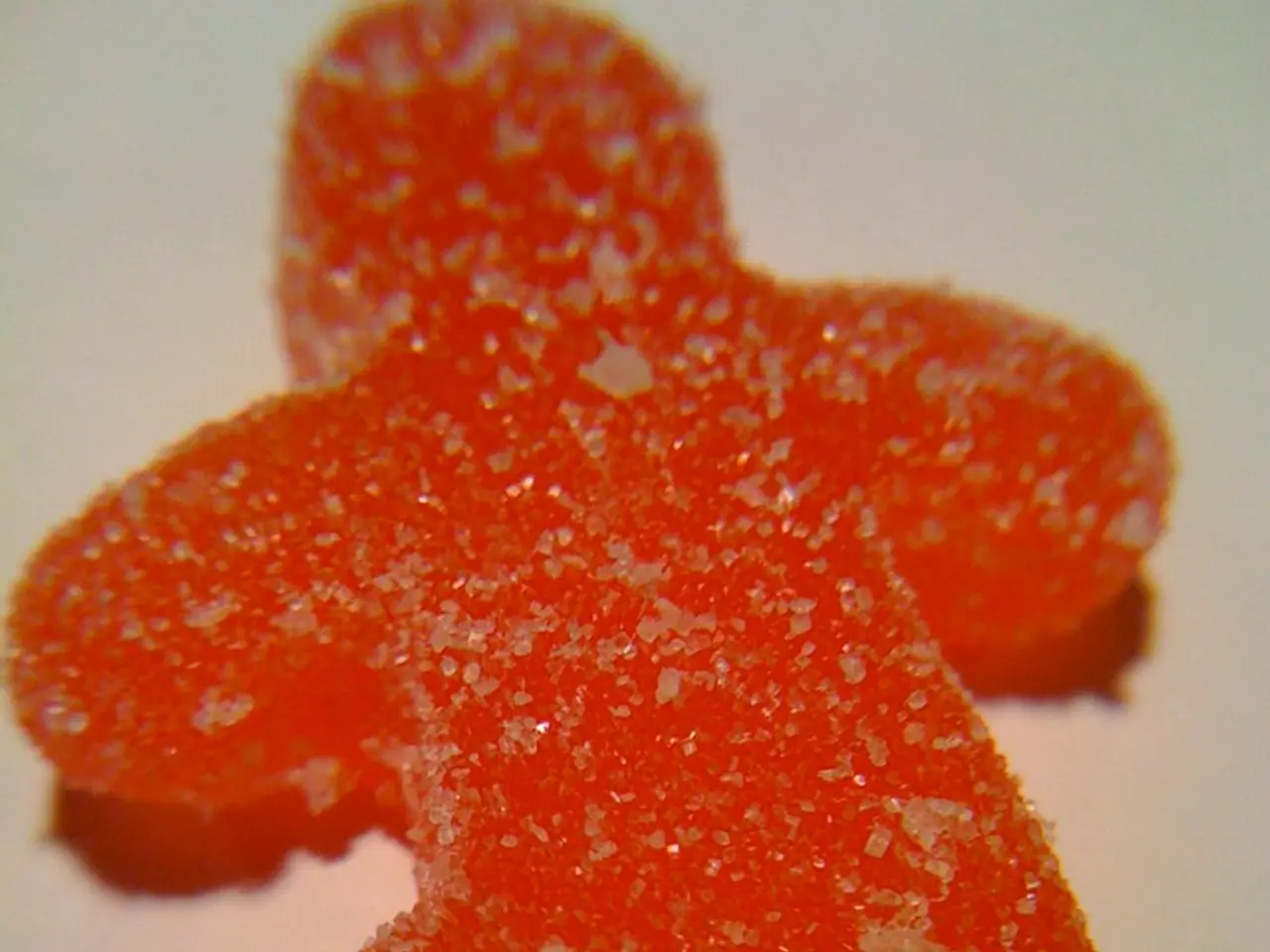Revised Beverage Tax establishment in UAE: Tax calculation to be determined by sugar content in drinks
The United Arab Emirates (UAE) has announced a significant change to its excise tax policy, specifically for sweetened beverages. Starting from 2026, the tax on these drinks will no longer be a flat rate but will be based on their sugar content [1][3][5].
The UAE has long been committed to encouraging healthy eating habits among its residents. This commitment is evident in its decision to levy excise tax on certain goods harmful to public health or the environment since 2017, including carbonated drinks, energy drinks, tobacco products, and electronic smoking devices [1].
From 2017, products with added sugar or other sweeteners have been subject to a 50% excise tax, while energy drinks, tobacco products, and electronic smoking devices have been subject to a 100% excise tax [1]. However, as of the current policy, carbonated drinks are subject to a 50% excise tax [2].
The upcoming change means that the tax rate will vary proportionally with the amount of sugar per 100 ml in the product. This means that beverages with higher sugar content will incur a higher tax per liter, encouraging manufacturers to reduce sugar levels in their products [1][3][5].
The aim of this shift is to promote healthier consumption habits by incentivizing beverage producers to reformulate drinks with less sugar. The policy supports the UAE’s broader public health strategy to combat issues like obesity and diabetes, making healthier drinks more accessible while reducing sugar intake among residents [1][4][5].
The Ministry of Finance and the Federal Tax Authority have announced that they will hold awareness campaigns to ensure stakeholders can understand this new move [1]. This reform has been announced well in advance to give manufacturers and other stakeholders sufficient time to adapt production and tax reporting systems accordingly [1][5].
This reform is part of a broader effort to promote healthier lifestyles in the UAE. For instance, Abu Dhabi's Department of Education and Knowledge recently released a policy outlining clear guidelines for providing sustainable and health-conscious food options in schools [6]. Additionally, the tax was expanded in 2019 to include electronic smoking devices, liquids used in such devices, and sweetened beverages [2].
In summary, the nature of the excise tax on sweetened beverages from 2026 in the UAE is a tiered, volumetric tax based on sugar content, aimed at protecting public health through reduced sugar consumption and encouraging healthier product formulations [1][3][5].
References: [1] Zawya. (2021, March 29). UAE to impose excise tax on sweetened beverages based on sugar content from 2026. Retrieved from https://www.zawya.com/mena/en/business/story/UAE_to_impose_excise_tax_on_sweetened_beverages_based_on_sugar_content_from_2026-GJDJQY6/ [2] Gulf News. (2019, September 11). UAE introduces excise tax on e-cigarettes, sweetened beverages. Retrieved from https://gulfnews.com/business/economy/uae-introduces-excise-tax-on-e-cigarettes-sweetened-beverages-1.65653197 [3] The National. (2021, March 29). UAE to impose excise tax on sweetened drinks based on sugar content from 2026. Retrieved from https://www.thenationalnews.com/business/economy/uae-to-impose-excise-tax-on-sweetened-drinks-based-on-sugar-content-from-2026-1.1117902 [4] Khaleej Times. (2021, March 29). UAE to impose excise tax on sweetened beverages based on sugar content from 2026. Retrieved from https://www.khaleejtimes.com/business/government/uae-to-impose-excise-tax-on-sweetened-beverages-based-on-sugar-content-from-2026 [5] Gulf News. (2021, March 29). UAE to impose excise tax on sweetened beverages based on sugar content from 2026. Retrieved from https://gulfnews.com/business/economy/uae-to-impose-excise-tax-on-sweetened-beverages-based-on-sugar-content-1.78625052 [6] Gulf News. (2021, March 29). Abu Dhabi schools to provide healthier food options as part of new policy. Retrieved from https://gulfnews.com/uae/education/abu-dhabi-schools-to-provide-healthier-food-options-as-part-of-new-policy-1.78624641
- This shift in excise tax policy by the UAE on sweetened beverages in 2026 is part of a broader effort to promote healthier lifestyles, aligning with the country's ongoing commitment to health and wellness.
- The new tax policy will incentivize beverage producers to reformulate their products with reduced sugar content, contributing to a healthier populace and potentially addressing health issues like obesity and diabetes.
- In addition to the excise tax on sweetened beverages, the UAE has previously implemented a similar policy for tobacco products, electronic smoking devices, and energy drinks, reflecting its dedication to protecting public health and the environment.
- The forthcoming excise tax reform calls for a tiered, volumetric tax based on the sugar content in each product, with higher sugar content resulting in a higher tax per liter.
- As the UAE has announced this new policy well in advance, manufacturers and other stakeholders have been given sufficient time to adapt their production and tax reporting systems accordingly.
- In an attempt to raise awareness about this change, the Ministry of Finance and the Federal Tax Authority will conduct campaigns to ensure understanding among all stakeholders.
- Alongside the policy change for beverages, Abu Dhabi's Department of Education and Knowledge has also released guidelines for offering sustainable and health-conscious food options in schools, further emphasizing the UAE's commitment to the overall health and wellness of its residents.




